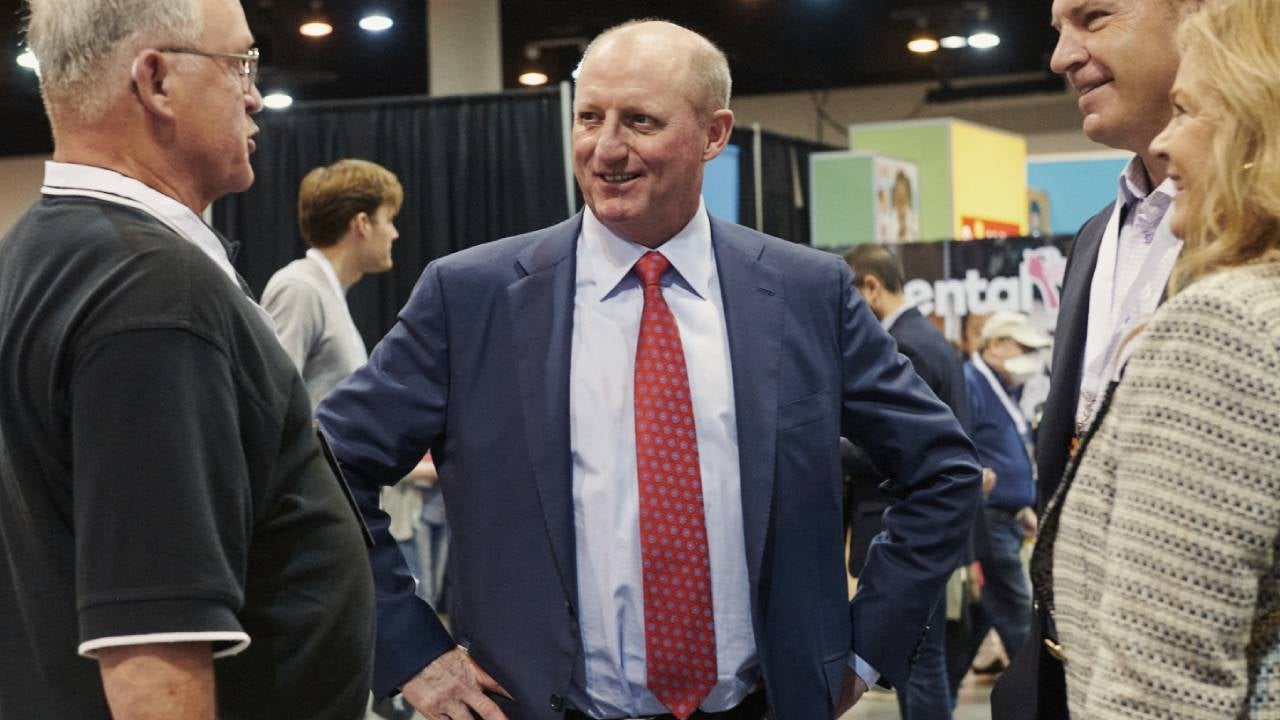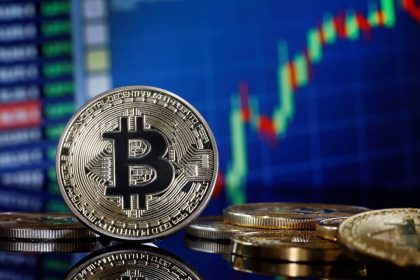Berkshire Hathaway CEO Warren Buffett stunned shareholders at the company’s annual meeting on Saturday when he announced his plan to step down as CEO at the end of 2025. A day later, the company’s board of directors, at Buffett’s recommendation, unanimously voted to appoint Greg Abel as Berkshire’s new CEO effective Jan. 1, 2026.
The transition marks the end of an era for Berkshire, where Buffett spent the past 60 years writing one of the best business success stories in history. He turned a struggling textile manufacturer into a sprawling conglomerate worth more than $1 trillion, making many Berkshire shareholders millionaires — and even billionaires — in the process.
While Buffett will remain as Berkshire chairman, his departure as CEO turns investors’ focus to the company’s future and whether Abel can build value in a similar way to his legendary predecessor.
Here’s what investors should know about Abel and the key issues facing Berkshire without Buffett.
Need an advisor?
Need expert guidance when it comes to managing your investments or planning for retirement?
Bankrate’s AdvisorMatch can connect you to a CFP® professional to help you achieve your financial goals.
Who is incoming Berkshire Hathaway CEO Greg Abel?
While Buffett’s announcement that he would step down as CEO came as a surprise, the decision to appoint Greg Abel as his successor did not. At Berkshire’s 2021 annual meeting, Buffett’s longtime partner Charlie Munger accidentally revealed Abel as Buffett’s successor during a discussion on the importance of culture in Berkshire’s decentralized organization.
“Greg will keep the culture,” Munger, who died in 2023, said at the time.
Abel came to Berkshire as part of its 1999 acquisition of a stake in MidAmerican Energy, now known as Berkshire Hathaway Energy (BHE). Abel served as CEO of BHE from 2008 to 2018 and has regularly earned high praise from Buffett. He first mentioned Abel in his 2002 letter to shareholders, calling him a “huge asset for Berkshire.”
In 2018, Abel was named vice chair of non-insurance operations for Berkshire, leading many observers to wonder if he’d one day take over for Buffett as CEO. His oversight includes Berkshire’s energy businesses, the BNSF Railway, Dairy Queen, See’s Candies and more.
Abel is expected to be more involved in Berkshire’s subsidiaries than Buffett, who famously left managers alone to run their businesses as they saw fit.
“I think the prospects of Berkshire will be better under Greg’s management than mine,” Buffett said Saturday.
Berkshire after Warren Buffett: 3 key issues for investors
1. No one can replace Warren Buffett
Berkshire shareholders will have to acknowledge that no one can replace Buffett. He’s a one-of-a-kind leader who combined financial genius with humility and common sense to create the strength and reputation Berkshire now enjoys.
Berkshire’s massive size makes it impossible for Abel to replicate Buffett’s investment performance of the past six decades, but that doesn’t mean the outlook is bleak. Berkshire owns a solid collection of businesses that produces billions of dollars of cash each year that can be redeployed in many different ways to create value.
Buffett is considered one of the greatest investors ever, so it shouldn’t come as a shock if Abel isn’t quite in Buffett’s league when it comes to investing. Munger had this blunt assessment several years ago when the topic of succession started to come up regularly:
“When Warren is gone, the acquisition side of Berkshire will not do as well, but the rest will do well. And the acquisition side will do just fine,” Munger said. “I think the top guy won’t be as smart as Warren. But it’s silly to complain, ‘What kind of world is this that gives me Warren for forty years and then some bastard comes along who’s worse?”
2. Can Berkshire still be the buyer of choice?
One of Berkshire’s major advantages is its reputation, which has helped it put cash to work in attractive deals during times of crisis and caused business owners to sell to Berkshire when they may have been able to get a higher price from private equity firms or other buyers. This reputation is closely tied to Buffett himself and may not be as strong once he’s no longer around.
There may currently be managers of Berkshire subsidiaries who continue working because they like working for and with Buffett. Abel might not hold quite the same appeal, at least initially.
One key strength of Berkshire’s that isn’t going anywhere any time soon is its significant financial strength, which enables it to step in during financial crises and even be helpful to the government during those moments. Berkshire had nearly $350 billion in cash at the end of the first quarter.
“I think that Berkshire has a special reputation that when there’s times of trouble for the government that we are an asset and not a liability,” Buffett said Saturday, “which is a position that’s very hard to have, because usually, the public and government get very negative on business if there’s a time like that.”
3. Massive cash holdings may lead to a dividend, greater share repurchases
Berkshire’s massive cash position is both a challenge and an opportunity for Abel. He has the ability to make major acquisitions at a moment’s notice, but Berkshire has struggled to find investments that meet its value criteria in recent years, and more cash comes in every day. Shareholders have been patient when Buffett holds large amounts of cash because of the trust he has built over decades, but Abel may not receive the same benefit of the doubt.
For decades, Buffett has shunned the idea of paying a dividend, instead preferring to reinvest Berkshire’s earnings as long as he felt he could create value for shareholders. But initiating a dividend may help relieve some of the pressure on Abel to find attractive uses for Berkshire’s cash. Abel could also be more aggressive about share repurchases than Buffett has been.
Even when the next crisis comes that serves up significant opportunities in stocks or acquisitions for Berkshire, deploying $300 billion or more is no small task. Giving more of it back to shareholders could take some pressure off Abel’s shoulders.
Editorial Disclaimer: All investors are advised to conduct their own independent research into investment strategies before making an investment decision. In addition, investors are advised that past investment product performance is no guarantee of future price appreciation.
Read the full article here





